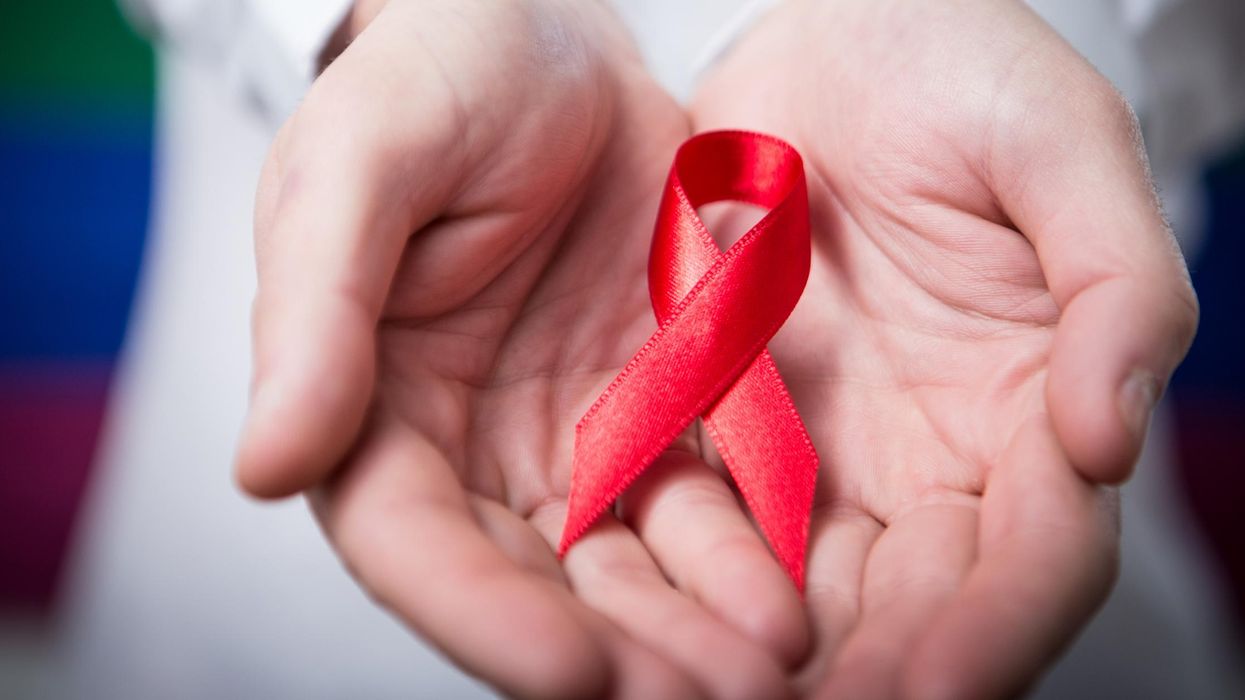Dr Elizabeth Kershaw-Yates
Dec 01, 2019

Picture:
Getty/iStockphoto
There are a lot of myths around HIV and Aids – but what does it mean if you are diagnosed as HIV positive in the UK today?
The attitudes around HIV and Aids have changed dramatically within the past few decades but there are still a lot of misinformation about how HIV is spread, who can contract it, and what it means if you are HIV positive. We spoke to the team at The Online Clinic and The STI Clinic to get the facts.
1. There’s a difference between HIV and Aids
HIV is a virus which attacks your immune system making you vulnerable to infections and diseases. Aids (Acquired Immune Deficiency Syndrome) is the term which is used to describe the condition once the immune system has been severely damaged.
Someone who has Aids has already contracted a number of potentially life-threatening infections.
2. You are more likely to die with HIV than from HIV
HIV, or the Human Immunodeficiency Virus, is a disease which attacks our immune system, making us vulnerable to infections.
Unfortunately, in developing countries, the mortality rate of people with Aids is still quite high, but in the UK, HIV, although a chronic disease, can now be managed with proper and regular treatment.
3. You can’t catch HIV through sweat, urine or saliva
HIV is transmitted through the bodily fluid of an infected person, either through blood, semen, vaginal secretions, or breastmilk.
It is a very fragile virus and cannot survive outside the body for very long, therefore it cannot be transmitted through sweat, urine or saliva. For the same reason, It also can’t be transmitted by mosquitos.
4. HIV does not discriminate
The majority of new diagnoses in the UK are in the heterosexual community, and a third of all HIV diagnoses are women. It was previously believed that the virus only affected gay men, when in reality it affects people of all sexual orientation, gender, age and race.
5. It can be prevented
You can protect yourself from HIV by making sure you use a condom during sex. Make sure you have STI tests regularly, and if you use needles to inject, make sure they are sterile ones which aren’t being shared with anyone else.
PrEP is a drug which can be taken to prevent being infected with HIV. It’s a good idea to take PrEP if you are at a high risk of contracting HIV. Risks include having unprotected anal sex, using recreational drugs such as crystal meth, GHB or mephedrone or being in a relationship with someone who is HIV positive. The drug can be prescribed through the NHS at GUM clinics or by some online clinics.
6. Tests are simple and easily available
Tests for HIV are available at a GP’s surgery, sexual health clinic, or can be ordered online. To be tested, you will need to give a sample of your blood or saliva, depending on the type of test you take.
An early diagnosis means that you will be able to start treatment sooner and can improve your chances of controlling the virus. Tests may need to be repeated 1-3 months after potential exposure to HIV.
7. With the right treatment, it is manageable
Although there is no cure for HIV, the virus can be treated with antiretroviral medications which prevent the virus from replicating in the body, which gives the immune system time to repair itself and prevents any further damage.
The virus can become resistant very easily, so a combination of drugs is usually prescribed. If you have HIV you will need to take medication for the rest of your life, and even missing just a few doses can increase the risk of the treatment not working.
Advice given by Dr Elizabeth Kershaw-Yates, GP and one of the medical team at TheOnlineClinic and TheSTIclinic
More: Mike Pence, who wanted to fund conversion therapy over HIV treatment, gave a World Aids Day speech
More: First MP to reveal he is HIV positive shreds former health secretary Jeremy Hunt on Twitter

Top 100
The Conversation (0)












